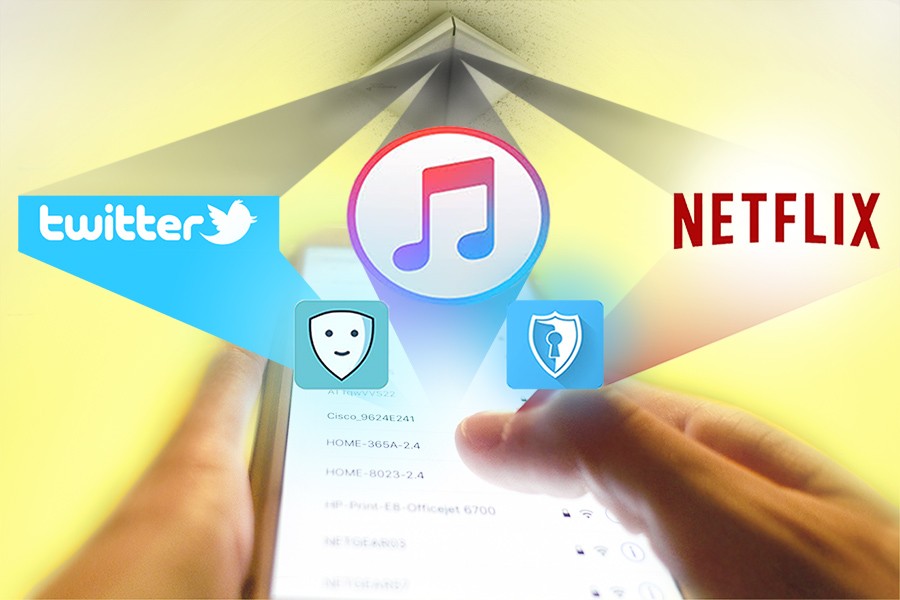School tries to eliminate VPN usage
Students have been using VPN apps like BetterNet and Surf Easy to bypass district restrictions on the internet.
December 2, 2015
In an announcement earlier this year, many Virtual Private Network (VPN) users were given a shock when told they had to get rid of the VPNs or they’d be kicked off the school’s Wi-Fi.
“Students and people in general would like to have access to everything, but the reality of public institutions is that there are going to be some limits and the, if not sole, purpose of a VPN is to work around the system,” Phil Clark, principal, said.
A VPN allows users to have their own network in order to bypass firewalls put in place to prevent someone from going to certain sites.
Tech support came in to check the school’s Wi-Fi to determine its capacity strength when they discovered the number of students using the VPNs.
Students still using a VPN after the announcement were kicked off.
They found there were more than 500 students using the VPNs when they first came in. A lot of which didn’t know what the problem was about using VPNs.
Alex Warn, building tech support, explained that the school blocks things for students’ own protection.
For example, it blocks illegal things such as pornography, which can be found on sites such as Twitter, Snapchat, and Instagram.
Blocking sites with illegal and inappropriate content for adolescents benefits the students Warn said.
“There was a discovery that revealed a significant number of students using a VPN,” Clark said.
What students don’t realize is that when they use these VPNs for things such as iTunes and YouTube, they’re preventing students from using the Wi-Fi for educational purposes.
“[We] have two issues. One: is it a violation of what was considered out of bounds? And two: is it a form of piracy which places strain on the system that was designed for educational purposes?” Clark said.
Warn agreed that Wi-Fi access makes it very easy for students to do things they shouldn’t.
However, he thinks the school having Wi-Fi does more good than harm.
“It…allows teachers to access kids intellectually in ways they couldn’t do before,” Warn said.
He also says it’s a double-edged sword because there will be students who do things they shouldn’t, but there are also students who will benefit from having access to all the information the Internet provides.
Another question going around the school concerns how specific the tech support people can get when it comes to finding out who is using the apps, and some may be surprised to hear the answer.
“They were able to provide me with a list of students and number of minutes spent on YouTube or other websites,” Clark said.
That’s right, they can find out exactly who uses the VPNs and when and how long they use them.

